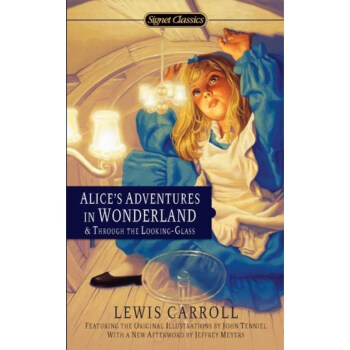![The Origin of Species物种起源 英文原版 [平装]](https://pic.windowsfront.com/19017075/8756c9a3-d4fe-4d2a-9847-fb423a0453dd.jpg)

具体描述
编辑推荐
进化与遗传的全面考察与经典阐述。宇宙进化,导致生命起源;生物进化,导致人类起源;人类进化。导致社会的起源与发展。这就是《物种起源》所揭示的物种的演进规律。遗传、变异与选择,是生物进化过程中自然选择的三种主导力量。而《物种起源》则全面考察了这三种力量的交互的作用关系。内容简介
The publication of Darwin's The Origin of Species in 1859 marked a dramatic turning point in scientific thought. The volume had taken Darwin more than twenty years to publish, in part because he envisioned the storm of controversy it was certain to unleash. Indeed, selling out its first edition on its first day, The Origin of Species revolutionized science, philosophy, and theology.Darwin's reasoned, documented arguments carefully advance his theory of natural selection and his assertion that species were not created all at once by a divine hand but started with a few simple forms that mutated and adapted over time. Whether commenting on his own poor health, discussing his experiments to test instinct in bees, or relating a conversation about a South American burrowing rodent, Darwin's monumental achievement is surprisingly personal and delightfully readable. Its profound ideas remain controversial even today, making it the most influential book in the natural sciences ever written—an important work not just to its time but to the history of humankind.
影响人类发展进程的划时代著作。1985年美国《生活》杂志评为人类有史以来最佳图书。1986年法国《读书》杂志推荐的最理想藏书之一。《物种起源》的问世,第一次让生物学建立在完全科学的基础之上。彻底推翻了“神创论”和“物种不变论”。
作者简介
CHARLES ROBERT DARWIN was born in 1809 in Shrewsbury, England, to a wealthy intellectual family, his grandfather being the famous physician Erasmus Darwin. At Cambridge University he formed a friendship with J. S. Henslow, a professor of botany, and that association, along with his enthusiasm for collecting beetles, led to "a burning zeal," as he wrote in his Autobiography, for the natural sciences. When Henslow obtained for him the post of naturalist on H.M.S. Beagle, the course of his life was fixed. The five-year-long voyage to the Southern Hemisphere between 1831 and 1836 would lay the foundation for his ideas about evolution and natural selection. Upon his return Darwin lived in London before retiring to his residence at Down, a secluded village in Kent. For the next forty years he conducted his research there and wrote the works that would change human understanding forever. Knowing of the resistance from the orthodox scientific and religious communities, Darwin published The Origin of Species in 1859 only when another naturalist, Alfred Russel Wallace, independently reached the same conclusions. His other works include The Descent of Man, and Selection in Relation to Sex (1871) and Recollections of My Mind and Character, also titled Autobiography (1887). Charles Darwin's Diary of the Voyage of the H.M.S. Beagle was published posthumously in 1933. Darwin died in 1882; he is buried in Westminster Abbey.查理·达尔文(1809—1882年),英国博物学家,进化论奠基者。22岁从剑桥大学毕业后.以博物学家的身份乘“贝格尔号”作历时五年的环旅行,并由此形成了生物进化的观点。l859年,达尔文发表划时代巨著——《物种起源》。震惊了科学界和整个世界。达尔文在该书中重点阐述并论证了高等生物是由低等生物逐渐演变而来的进化论思想,并提出了以自然选择、适者生存为基础的进化学说。进化论、能量守恒和转换定律、细胞学说,被恩格斯高度评价为“19世纪自然科学的三大发现”。
精彩书摘
Chapter OneVariation Under Domestication
Causes of Variability—Effects of Habit—Correlation of Growth—Inheritance—Character of Domestic Varieties—Difficulty of distinguishing between Varieties and Species—Origin of Domestic Varieties from one or more Species—Domestic Pigeons, their Differences and Origin—Principle of Selection anciently followed, its Effects—Methodical and Unconscious Selection—Unknown Origin of our Domestic Productions—Circumstances favourable to Man's power of Selection
WHEN WE look to the individuals of the same variety or sub-variety of our older cultivated plants and animals, one of the first points which strikes us, is, that they generally differ much more from each other, than do the individuals of any one species or variety in a state of nature. When we reflect on the vast diversity of the plants and animals which have been cultivated, and which have varied during all ages under the most different climates and treatment, I think we are driven to conclude that this greater variability is simply due to our domestic productions having been raised under conditions of life not so uniform as, and somewhat different from, those to which the parent species have been exposed under nature. There is, also, I think, some probability in the view propounded by Andrew Knight, that this variability may be partly connected with excess of food. It seems pretty clear that organic beings must be exposed during several generations to the new conditions of life to cause any appreciable amount of variation; and that when the organisation has once begun to vary, it generally continues to vary for many generations. No case is on record of a variable being ceasing to be variable under cultivation. Our oldest cultivated plants, such as wheat, still often yield new varieties: our oldest domesticated animals are still capable of rapid improvement or modification.
It has been disputed at what period of life the causes of variability, whatever they may be, generally act; whether during the early or late period of development of the embryo, or at the instant of conception. Geoffroy St Hilaire's experiments show that unnatural treatment of the embryo causes monstrosities; and monstrosities cannot be separated by any clear line of distinction from mere variations. But I am strongly inclined to suspect that the most frequent cause of variability may be attributed to the male and female reproductive elements having been affected prior to the act of conception. Several reasons make me believe in this; but the chief one is the remarkable effect which confinement or cultivation has on the functions of the reproductive system; this system appearing to be far more susceptible than any other part of the organization, to the action of any change in the conditions of life. Nothing is more easy than to tame an animal, and few things more difficult than to get it to breed freely under confinement, even in the many cases when the male and female unite. How many animals there are which will not breed, though living long under not very close confinement in their native country! This is generally attributed to vitiated instincts; but how many cultivated plants display the utmost vigour, and yet rarely or never seed! In some few such cases it has been found out that very trifling changes, such as a little more or less water at some particular period of growth, will determine whether or not the plant sets a seed. I cannot here enter on the copious details which I have collected on this curious subject; but to show how singular the laws are which determine the reproduction of animals under confinement, I may just mention that carnivorous animals, even from the tropics, breed in this country pretty freely under confinement, with the exception of the plantigrades or bear family; whereas, carnivorous birds, with the rarest exceptions, hardly ever lay fertile eggs. Many exotic plants have pollen utterly worthless, in the same exact condition as in the most sterile hybrids. When, on the one hand, we see domesticated animals and plants, though often weak and sickly, yet breeding quite freely under confinement; and when, on the other hand, we see individuals, though taken young from a state of nature, perfectly tamed, long-lived, and healthy (of which I could give numerous instances), yet having their reproductive system so seriously affected by unperceived causes as to fail in acting, we need not be surprised at this system, when it does act under confinement, acting not quite regularly, and producing offspring not perfectly like their parents or variable.
Sterility has been said to be the bane of horticulture; but on this view we owe variability to the same cause which produces sterility; and variability is the source of all the choicest productions of the garden. I may add, that as some organisms will breed most freely under the most unnatural conditions (for instance, the rabbit and ferret kept in hutches), showing that their reproductive system has not been thus affected; so will some animals and plants withstand domestication or cultivation, and vary very slightly—perhaps hardly more than in a state of nature.
A long list could easily be given of 'sporting plants;' by this term gardeners mean a single bud or offset, which suddenly assumes a new and sometimes very different character from that of the rest of the plant. Such buds can be propagated by grafting, &c.;, and sometimes by seed. These 'sports' are extremely rare under nature, but far from rare under cultivation; and in this case we see that the treatment of the parent has affected a bud or offset, and not the ovules or pollen. But it is the opinion of most physiologists that there is no essential difference between a bud and an ovule in their earliest stages of formation; so that, in fact, 'sports' support my view, that variability may be largely attributed to the ovules or pollen, or to both, having been affected by the treatment of the parent prior to the act of conception. These cases anyhow show that variation is not necessarily connected, as some authors have supposed, with the act of generation.
Seedlings from the same fruit, and the young of the same litter, sometimes differ considerably from each other, though both the young and the parents, as Mxller has remarked, have apparently been exposed to exactly the same conditions of life; and this shows how unimportant the direct effects of the conditions of life are in comparison with the laws of reproduction, and of growth, and of inheritance; for had the action of the conditions been direct, if any of the young had varied, all would probably have varied in the same manner. To judge how much, in the case of any variation, we should attribute to the direct action of heat, moisture, light, food, &c.;, is most difficult: my impression is, that with animals such agencies have produced very little direct effect, though apparently more in the case of plants. Under this point of view, Mr Buckman's recent experiments on plants seem extremely valuable. When all or nearly all the individuals exposed to certain conditions are affected in the same way, the change at first appears to be directly due to such conditions; but in some cases it can be shown that quite opposite conditions produce similar changes of structure. Nevertheless some slight amount of change may, I think, be attributed to the direct action of the conditions of life—as, in some cases, increased size from amount of food, colour from particular kinds of food and from light, and perhaps the thickness of fur from climate.
Habit also has a deciding influence, as in the period of flowering with plants when transported from one climate to another. In animals it has a more marked effect; for instance, I find in the domestic duck that the bones of the wing weigh less and the bones of the leg more, in proportion to the whole skeleton, than do the same bones in the wild-duck; and I presume that this change may be safely attributed to the domestic duck flying much less, and walking more, than its wild parent. The great and inherited development of the udders in cows and goats in countries where they are habitually milked, in comparison with the state of these organs in other countries, is another instance of the effect of use. Not a single domestic animal can be named which has not in some country drooping ears; and the view suggested by some authors, that the drooping is due to the disuse of the muscles of the ear, from the animals not being much alarmed by danger, seems probable.
There are many laws regulating variation, some few of which can be dimly seen, and will be hereafter briefly mentioned. I will here only allude to what may be called correlation of growth. Any change in the embryo or larva will almost certainly entail changes in the mature animal. In monstrosities, the correlations between quite distinct parts are very curious; and many instances are given in Isidore Geoffroy St Hilaire's great work on this subject. Breeders believe that long limbs are almost always accompanied by an elongated head. Some instances of correlation are quite whimsical; thus cats with blue eyes are invariably deaf; colour and constitutional peculiarities go together, of which many remarkable cases could be given amongst animals and plants. From the facts collected by Heusinger, it appears that white sheep and pigs are differently affected from coloured individuals by certain vegetable poisons. Hairless dogs have imperfect teeth; long-haired and coarse-haired animals are apt to have, as is asserted, long or many horns; pigeons with feathered feet have skin between their outer toes; pigeons with short beaks have small feet, and those with long beaks large feet. Hence, if man goes on selecting, and thus augmenting, any peculiarity, he will almost certainly unconsciously modify other parts of the structure, owing to the mysterious laws of the correlation of growth.
The result of the various, quite unknown, or dimly seen laws of variation is infinitely complex a...
用户评价
这本书对我最大的影响,或许在于它彻底改变了我对时间尺度的感知。在日常生活中,我们习惯于以年、月、日来衡量生活,而阅读这本书,你必须学会用地质学的视角去看待事物——百万年乃至亿万年的尺度。那些我们习以为常的物种,它们在历史长河中不过是刚刚露面的一瞬。作者通过对化石记录、地理分布和人工育种的细致比对,生动地描绘出生命演化是一部持续不断、永不停止的史诗。这种宏大叙事的冲击力,让人在面对眼前的自然现象时,会不自觉地联想到更深远的历史背景。比如,看到一只鸟的喙,你不会仅仅觉得它很适合啄食,而是会思考,在它祖先的生存斗争中,是怎样的微小优势,让这个喙型得以保留并强化下来。
评分购买平装版是一次非常明智的选择,它轻便易携,非常适合在旅途中或者午休时间随时拿出来翻阅。书的装帧虽然朴素,但却非常耐用,能够经受得住反复翻折和在不同环境下携带。这本书的价值早已超越了一本普通的书籍范畴,它更像是一张通往科学思想革命核心的门票。每次合上它,我都会感到世界观被重新校准了一次。它挑战了我们关于生命起源和目的性的固有观念,迫使我们以一种更谦逊、更客观的态度去审视生命本身。对于那些对哲学、生物学、历史学都有所涉猎的读者来说,这本书提供了一个绝佳的交汇点,它引发的思考是多维度的,绝非一读即弃的快餐读物。
评分坦白说,初次翻开这本书时,我的内心是带着一种近乎朝圣的敬畏感,但很快,这种敬畏就转变为一种深深的困惑和挑战。书中的论证体系之庞大和精细,要求读者必须全神贯注,稍微走神可能就跟不上作者的思路了。那些关于变异的随机性、自然选择的无情压力,以及遗传的复杂性(尽管当时基因的概念尚未完全明确),都需要我们不断地停下来,结合自己已有的知识去消化和反刍。这本书的魅力就在于它的“硬核”,它不回避复杂的细节,而是将复杂的自然规律,通过清晰的逻辑链条,一步步呈现在我们面前。它不是在“告诉”你一个结论,而是在“带领”你亲自去推导出那个结论,这种沉浸式的学习体验是任何快速阅读指南都无法替代的。每一次攻克一个难懂的章节,都有一种智力上的巨大满足感。
评分这本书的语言风格非常独特,它既有科学论著的严谨,又不失一位博物学家的浪漫情怀。你可以感受到作者对自然界的热爱和惊奇,他不仅仅是在陈述事实,更像是在向读者展示他多年野外考察的精华总结。虽然某些段落的措辞略显冗长和古典,但正是这种传统的叙事方式,为那些革命性的思想披上了一层值得尊重的学术外衣。对于任何渴望理解生命科学根基的人来说,阅读原著是无可替代的。它保留了作者最初提出这些惊人想法时的语气和语境,那些被后世无数次引用和讨论的句子,在原文中读来,其力量感是远超任何翻译版本所能传达的。它让人理解了科学理论是如何诞生的,而不是被简化成教科书里的几个黑体字。
评分这本厚厚的书,拿到手里沉甸甸的,光是封面设计就透着一股古典的庄重感,那种泛黄的纸张和经典的字体排版,仿佛一下子就把你拉回了那个充满探索与争论的维多利亚时代。我一直对自然界中生命多样性的形成感到好奇,尤其是那些看起来毫不相干的物种之间,它们之间到底存在着怎样的联系,这背后的驱动力又是什么?这本书以一种极其严谨且充满逻辑性的方式,构建了一个宏大的理论框架。它不是那种轻描淡写的科普读物,而是充满了扎实的观察记录和细致的推理过程。阅读的过程就像是跟随一位经验丰富的博物学家,深入到世界各地,去观察那些微小的差异如何在漫长的时间中积累、分化,最终造就了我们今天所见到的千姿百态的生命。那种由大量实例支撑起来的说服力,真的让人不得不佩服作者的洞察力和耐心,它提供了一种全新的、颠覆性的视角来看待生命的历史。
评分不错的书 ,和原版一样,纸质也非常好
评分Science 类的书籍,探索进化的原著
评分学遗传学,没有读过祖师爷的书怎么行?这边书很小,方便携带,普通读者也对提高英语有帮助。
评分不错,简装版
评分hhhhhhhhhhh
评分不错
评分爱不释手,虽然没包装书脏脏的
评分The publication of Darwin's The Origin of Species in 1859 marked a dramatic turning point in scientific thought.
评分东西不错,已经多次购买~~强烈推荐~
相关图书
本站所有内容均为互联网搜索引擎提供的公开搜索信息,本站不存储任何数据与内容,任何内容与数据均与本站无关,如有需要请联系相关搜索引擎包括但不限于百度,google,bing,sogou 等,本站所有链接都为正版商品购买链接。
© 2026 windowsfront.com All Rights Reserved. 静流书站 版权所有

![Robots (National Geographic Kids: Level 3) 英文原版 [平装] [6~9岁] pdf epub mobi 电子书 下载](https://pic.windowsfront.com/19478993/53bcec41N55ce2f96.jpg)
![The Prince and the Pauper 王子与贫儿 [平装] pdf epub mobi 电子书 下载](https://pic.windowsfront.com/19017208/rBEhVFKW8egIAAAAAAi-c0FVJDUAAGEHwCrI4UACL6L980.jpg)
![Phonics 英文原版 [平装] [3岁及以上] pdf epub mobi 电子书 下载](https://pic.windowsfront.com/19031514/2b7245bc-9bd2-4701-a0b6-57d17dc09153.jpg)

![Seaweed Soup[海带汤] [平装] [4岁及以上] pdf epub mobi 电子书 下载](https://pic.windowsfront.com/19005092/550bf2a8N513fb1c3.jpg)
![The Story of My Life假如给我三天光明 (海伦·凯乐自传) 英文原版 [平装] pdf epub mobi 电子书 下载](https://pic.windowsfront.com/19029055/adcad8ad-7194-4d13-95ad-05f69b1657d6.jpg)

![Hamlet(Signet Classic Shakespeare Series) 哈姆雷特(莎士比亚经典作品) 英文原版 [平装] pdf epub mobi 电子书 下载](https://pic.windowsfront.com/19008598/rBEhUlJ6HXYIAAAAAADLfKKVFBAAAFFygKXCm4AAMuU382.jpg)

![Romeo and Juliet 罗密欧与朱丽叶 [平装] pdf epub mobi 电子书 下载](https://pic.windowsfront.com/19017182/96697ab2-91aa-4b4d-84f8-2149b4e21e63.jpg)
![Scholastic Success with Reading Comprehension: Grade 1学乐必赢阅读:1年级阅读理解 英文原版 [平装] [6岁及以上] pdf epub mobi 电子书 下载](https://pic.windowsfront.com/19025292/474a10f4-1a8f-47fc-99f5-66a273004756.jpg)
![Brooklyn布鲁克林 英文原版 [平装] pdf epub mobi 电子书 下载](https://pic.windowsfront.com/19028507/aa3a593e-2d01-4dba-b763-6ecc83e9b77e.jpg)



![Open the Barn Door: A Chunky Flap Book 英文原版 [平装] [1岁及以上] pdf epub mobi 电子书 下载](https://pic.windowsfront.com/19036457/f8fa52e2-095c-4280-bfef-1c05c4ef44df.jpg)
![Family Storybook Treasury with CD: Tales of Laughter, Curiosity, and Fun 英文原版 [精装] [4岁及以上] pdf epub mobi 电子书 下载](https://pic.windowsfront.com/19234612/rBEIC0_6dkEIAAAAAAC2J7dxDTYAADzgQDbHiEAALY_059.jpg)
![Grizzwold (I Can Read, Level 1)棕熊格里兹伍德 [平装] [4-8岁] pdf epub mobi 电子书 下载](https://pic.windowsfront.com/19004930/550be659N6e448965.jpg)
![The Lucky Lottery 幸运乐透奖 英文原版 [平装] [6-9岁] pdf epub mobi 电子书 下载](https://pic.windowsfront.com/19016482/58b6b634N8cb61415.jpg)
![Scholastic Success with Reading Tests: Grade 5学乐成功系列练习册:五年级阅读测验 英文原版 [平装] [10岁及以上] pdf epub mobi 电子书 下载](https://pic.windowsfront.com/19025299/565fd9f4Nda5bb1b0.jpg)